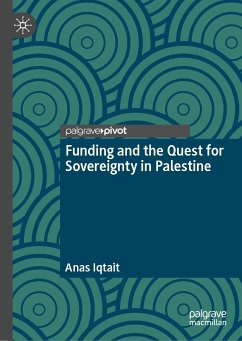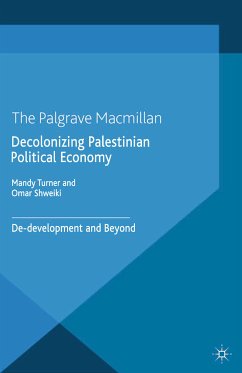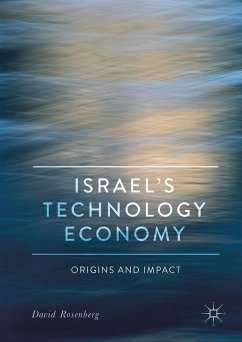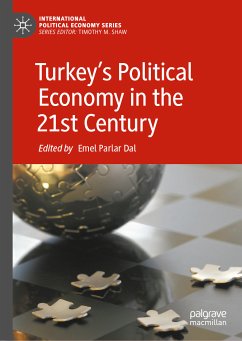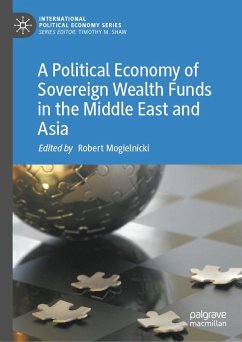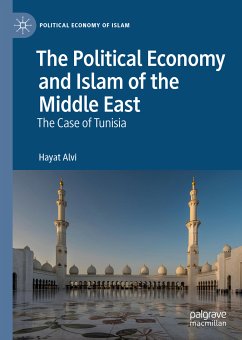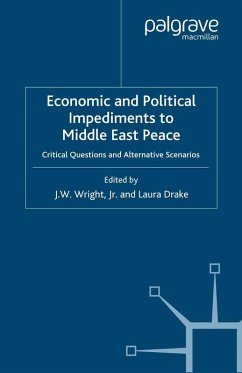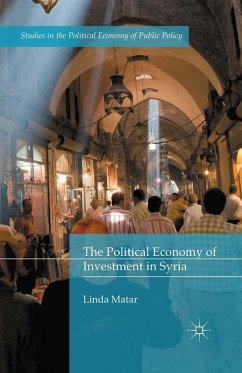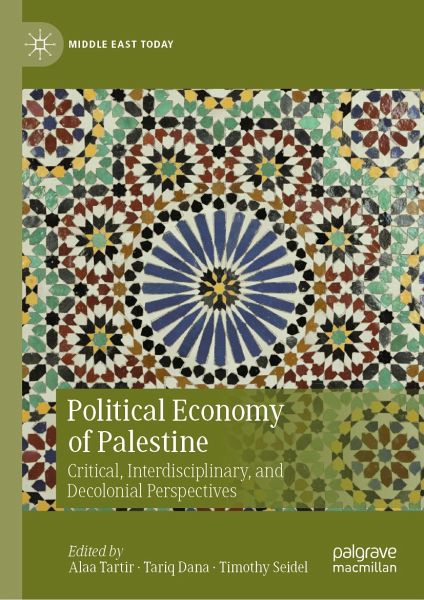
Political Economy of Palestine (eBook, PDF)
Critical, Interdisciplinary, and Decolonial Perspectives
Redaktion: Tartir, Alaa; Seidel, Timothy; Dana, Tariq
Versandkostenfrei!
Sofort per Download lieferbar
120,95 €
inkl. MwSt.
Weitere Ausgaben:

PAYBACK Punkte
60 °P sammeln!
This book explores the political economy of Palestine through critical, interdisciplinary, and decolonial perspectives, underscoring that an approach to economics that does not consider the political-a de-politicized economics-is inadequate to understanding the situation in occupied Palestine. A critical interdisciplinary approach to political economy challenges prevailing neoliberal logics and structures that reproduce racial capitalism, and explores how the political economy of occupied Palestine is shaped by processes of accumulation by exploitation and dispossession from both Israel and gl...
This book explores the political economy of Palestine through critical, interdisciplinary, and decolonial perspectives, underscoring that an approach to economics that does not consider the political-a de-politicized economics-is inadequate to understanding the situation in occupied Palestine. A critical interdisciplinary approach to political economy challenges prevailing neoliberal logics and structures that reproduce racial capitalism, and explores how the political economy of occupied Palestine is shaped by processes of accumulation by exploitation and dispossession from both Israel and global business, as well as from Palestinian elites. A decolonial approach to Palestinian political economy foregrounds struggles against neoliberal and settler colonial policies and institutions, and aids in the de-fragmentation of Palestinian life, land, and political economy that the Oslo Accords perpetuated, but whose histories of de-development over all of Palestine can be traced back for over a century. The chapters in this book offer an in-depth contextualization of the Palestinian political economy, analyze the political economy of integration, fragmentation, and inequality, and explore and problematize multiple sectors and themes of political economy in the absence of sovereignty.
Dieser Download kann aus rechtlichen Gründen nur mit Rechnungsadresse in A, B, BG, CY, CZ, D, DK, EW, E, FIN, F, GR, HR, H, IRL, I, LT, L, LR, M, NL, PL, P, R, S, SLO, SK ausgeliefert werden.




